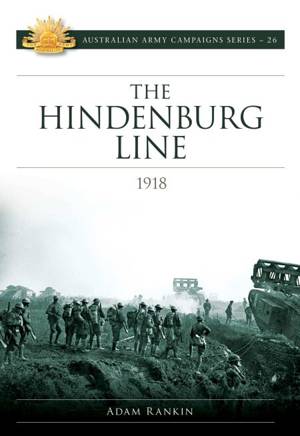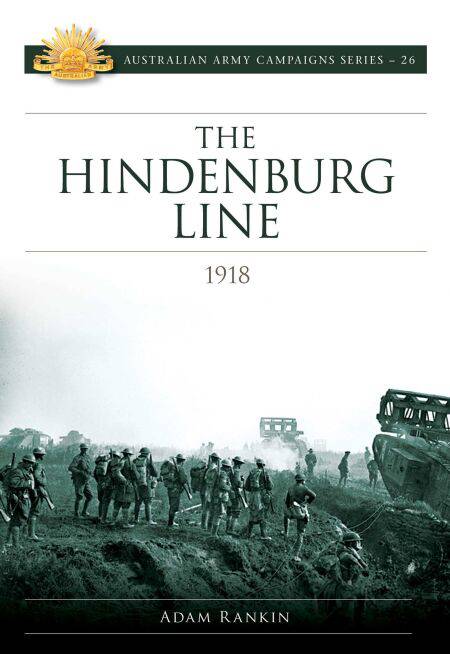
Bedankt voor het vertrouwen het afgelopen jaar! Om jou te bedanken bieden we GRATIS verzending (in België) aan op alles gedurende de hele maand januari.
- Afhalen na 1 uur in een winkel met voorraad
- In januari gratis thuislevering in België
- Ruim aanbod met 7 miljoen producten
Bedankt voor het vertrouwen het afgelopen jaar! Om jou te bedanken bieden we GRATIS verzending (in België) aan op alles gedurende de hele maand januari.
- Afhalen na 1 uur in een winkel met voorraad
- In januari gratis thuislevering in België
- Ruim aanbod met 7 miljoen producten
Zoeken
Omschrijving
In the last devastating months of the First World War, the British Fourth Army pursued the Germans to their final defensive position — the Hindenburg Line, a formidable series of defensive positions studded with concrete dugouts and thickly set barbed wire. The Hindenburg Line 1918 describes the two fiercely fought set-piece battles which saw Fourth Army break through the German line, paving the way for the final pursuit which ended with the Armistice. The Australian Corps was a pivotal part of the offensive to breach the Hindenburg Line, culminating in the assault to capture Montbrehain, the last Australian battle of the war. By the time it reached the Hindenburg Line, the Australian Corps had been in the line for months, its units exhausted and depleted. Despite this, these final offensives saw the battle-hardened Australians demonstrate their skill in the use of infantry, artillery, machine-guns, tanks, aeroplanes and all the other implements of war that had altered so fundamentally since 1914. Australian commanders had likewise benefited from years of war and were highly skilled in planning complex operations that incorporated the latest tactics, techniques and procedures. But the scale of operations on the Western Front required close cooperation with British and Allied troops, and it was as part of this coalition that the Australian Corps would play its vital role in finally securing battlefield victory and bringing the war to an end.
Specificaties
Betrokkenen
- Auteur(s):
- Uitgeverij:
Inhoud
- Aantal bladzijden:
- 180
- Taal:
- Engels
- Reeks:
Eigenschappen
- Productcode (EAN):
- 9781922265555
- Verschijningsdatum:
- 24/07/2019
- Uitvoering:
- E-book
- Beveiligd met:
- Adobe DRM
- Formaat:
- ePub

Alleen bij Standaard Boekhandel
+ 6 punten op je klantenkaart van Standaard Boekhandel
Beoordelingen
We publiceren alleen reviews die voldoen aan de voorwaarden voor reviews. Bekijk onze voorwaarden voor reviews.









